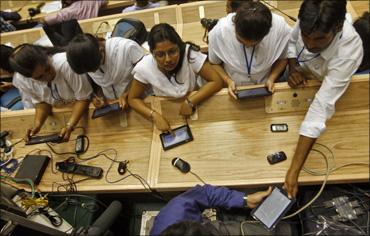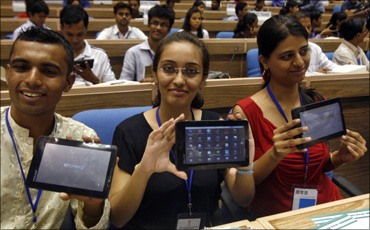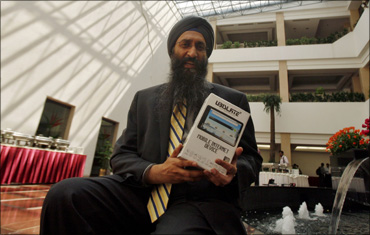 | « Back to article | Print this article |
India unveils world's cheapest tablet PC at $35!
The tablet PC, named Aakash, will cost the government Rs 2,276.
It will be given to students after subsidising the price by up to 50 per cent, HRD Minister Kapil Sibal said on Wednesday, while unveiling the device in New Delhi.
With PTI inputs
Click NEXT to read more...
India unveils world's cheapest tablet PC at $35!
Initially, an order of one lakh devices has been placed with device maker Datawind, Sibal said. The procurement order will be scaled up later with an aim to bringing down prices further, he added.
Click NEXT to read more...
India unveils world's cheapest tablet PC at $35!
"If 10 lakh pieces are ordered, then it will be priced at Rs 1,750 (cost to the government) which will include transportation cost and vendor's profit as well. So, I have fulfilled my promise of $35 tablet," Sibal said.
Sibal said he will ask telecom vendor ITI to manufacture it and will seek support of other industry players to scale up the production and reduce costs.


